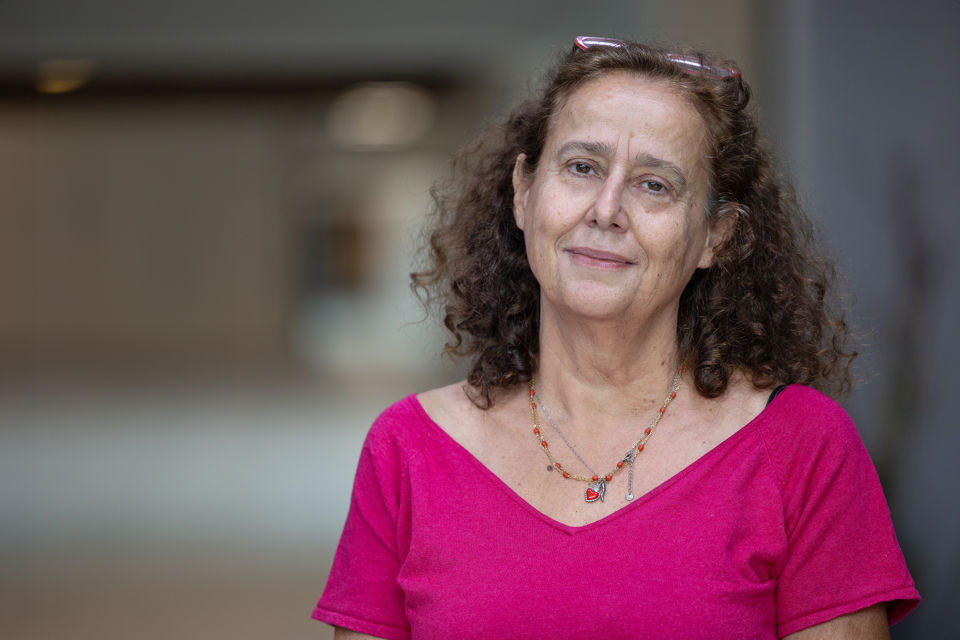
Partnership for Strengthening Rehabilitation in Eastern Africa: An Urgent Task
The Western Norway University of Applied Sciences (HVL) has secured EU funding for the AfroRehab 2030 project, a partnership and initiative aimed at enhancing higher education and research in rehabilitation across Eastern Africa.
Graziella Van den Bergh, from the Department of Health and Functioning, Section for Global Health and Rehabilitation, is leading the project. She is very pleased with the grant.
– It will be extremely important to offer education in rehabilitation at the master's level in sub-Saharan Africa, especially now that students from low-income countries must pay tuition almost everywhere if they want to pursue higher education, including in Norway, she says.
Van den Bergh explains that there is a huge and growing need for rehabilitation services in Africa. According to figures from the World Health Organization, 1 in 5 people, or around 210 million individuals in Africa, may require rehabilitation.
There are several reasons for this. For example, there is still inadequate maternal and childbirth care resulting in disability, many acquire injuries at work or due to traffic accidents, and many people need rehabilitation due to the consequences of infectious diseases such as malaria, HIV, or tuberculosis. More people are also developing chronic diseases such as diabetes, and the population is aging, further increasing the need for rehabilitation.
Establishing Master’s Programs in Tanzania and Kenya
The project, titled "AfroRehab 2030: Building Master’s Programs in Rehabilitation in Tanzania and Kenya," recently received NOK 9 million in EU funding. The grant is part of the highly competitive Erasmus+ program "Capacity Building in Higher Education" and marks HVL’s first award under this scheme.
HVL is coordinating the project, which constitutes a collaboration between two European and four African universities. The two universities in Tanzania are Kilimanjaro Christian Medical University College and Muhimbili University of Health and Allied Sciences, and in Kenya, Moi University and Jomo Kenyatta University are the partner institutions. The European partner is Arcada University of Applied Sciences in Helsinki.
 Photo: All the partner institutions working together with the application in January 2024 in Moshi. Photo by: Asteria Menuka
Photo: All the partner institutions working together with the application in January 2024 in Moshi. Photo by: Asteria Menuka
Over the course of the three-year project, a digital education platform will be developed, and one master's program will be established in Tanzania and another in Kenya. The master's programs will be interdisciplinary and will provide training for qualified teachers in physiotherapy, occupational therapy, speech and language therapy, audiology, and optometry, as well as teachers for orthopedic engineers (prosthetic and orthotics) in the region.
Master’s Programs to Foster New Bachelor's Degrees and PhD Recruitment
The new master's programs that will start in Tanzania and Kenya will help establish new bachelor's programs in various rehabilitation professions, which are much needed.
For example, in Tanzania, with a population of 60 million, the Ministry of Health estimates that as of July 2024, there are only a few hundred physiotherapists, orthopedic technicians, and occupational therapists combined, and just six speech therapists and audiologists.
- There is an enormous shortage of healthcare personnel related to rehabilitation in Africa, and most of those working in rehabilitation today have education levels below a bachelor's degree, says Van den Bergh.
Building Expertise Across the Region
The interdisciplinary master's programs will have specializations within the various professions, student-centered learning, internships in both the public and private sectors, and collaborative research.
The programs will be the first of their kind in sub-Saharan Africa and will establish a "hub" with education, service, and research centers and networks in rehabilitation in the region.
- The partner universities were chosen because they complement each other in terms of expertise in rehabilitation, and their geographical distribution will help promote student recruitment and a better distribution of rehabilitation personnel between urban and rural areas, ensuring that more people have access to services in the long term, says Van den Bergh.
- Students from other African countries will also come to study there, so this will build competence throughout the region, she adds.
A highly Enriching Partnership for all
Van den Bergh points out that this will also provide HVL with a lot of knowledge about global health and higher education issues, which is very useful.
– We are well-acquainted with the universities in Tanzania, and it will be exciting and very rewarding to collaborate with highly skilled colleagues in Tanzania and Kenya, as well as their networks in Malawi and South Africa, for example, says Van den Bergh.
For Norway and Finland, the European partners, the collaboration will contribute to competence building in global health through the exchange and co-production of study materials, international staff- and student exchanges, and not the least, research collaboration and joint supervision of master's and PhD students in rehabilitation.
